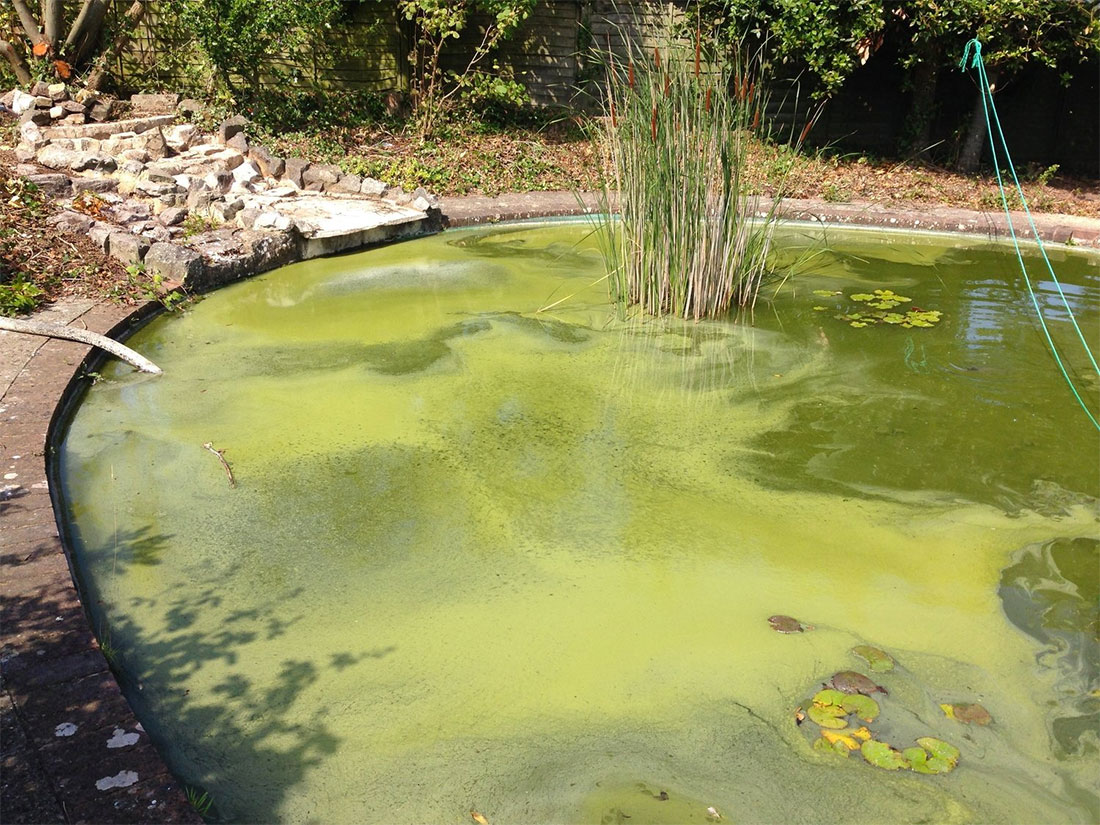Black Water

Keeping ponds can be difficult; there are a variety of things for you to look out for, particularly the colour of the pond. The pond can be clear, green, brown, and foamy. But it can also be black. This is rare in summer but more common in autumn; it is sign that there are several issues that may need remedying.
In most cases, black ponds can be caused by overusing chemical treatments on your pond. Using treatments is normally ok, but using several treatments at the same time for a prolonged period can unsettle the ponds balance. Treatments should be used sparingly as a preventative measure, or in the appropriate dosage when problems are present.
The black water itself is not harmful to the fish, but the underlying causes might be so you should investigate. Fish ponds should always have:
• A suitable pump and filter system that is properly maintained and cleaned regularly.
• An aerator (Please view our aeration blog posts)
• Good amounts of healthy bacteria (Our PondXpert Gel Balls are fantastic for releasing this kind of bacteria)
Waste or low Oxygen (Useful Blogs: Pond Sludge, Aeration, Filters & Their Maintenance)
This is the most common cause of black water in ponds. If your pond has a build up of sludge at the bottom, then it could be a sign that there aren’t enough healthy bacteria in the pond which can digest this sludge.
Normally, pondkeepers around the country will have a pump and filter system which can reduce the build up of waste, though you may need some assistance with this by using a vacuum or a net. A vacuum is often better at getting rid of the sludge, especially the PondXpert PondMaster (inc. Dirt Collector). The dirt collector has a mesh inside of it which can help clean the pond more thoroughly, although a small amount of waste can be beneficial as it is an area where the bacteria will thrive.
The black water could also be down to a lack of aeration, as oxygen in the pond encourages the development of healthy bacteria which can digest waste in the pond and manage the Ammonia, Nitrite or Nitrate levels in the pond.
Damaged Pondliner (Useful Blogs: Brown Water, Pond Liner Guarantees & Repairs)
A damaged pondliner can cause problems; as the water levels drop, this can damage your liner or ruin the ground around your pond. A damaged liner can cause sediment and minerals to leak into your pond. This should cause your pond to go brown first; if you see this, check out our Brown Water blog to identify if the cause.

Chemicals or algae? (Useful Blogs: Water Quality)
The last reason the pond could turn black is down to a chemical imbalance in the pond from treatments or a bloom in algae growth. So please check that you are not using too many treatments. As stated earlier, use treatments sparingly when using them for preventative reasons; then follow the dosage on the treatments when problems are present in the pond.
If your pond has other chemicals in the water that could be causing problems, you should test your water thoroughly to determine the levels of Ammonia, Nitrite, Nitrate and PH of your water. You can do this by doing the following:
• Take a sample of your water to a local garden centre
• Use the Blagdon Pond Health Test Kit or Tetra Pond Test 6-in-1
As always, if you have any queries, please email us on info@pondkeeper.co.uk.